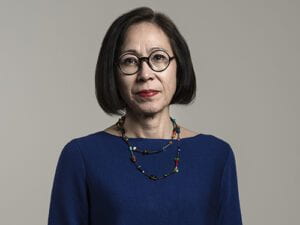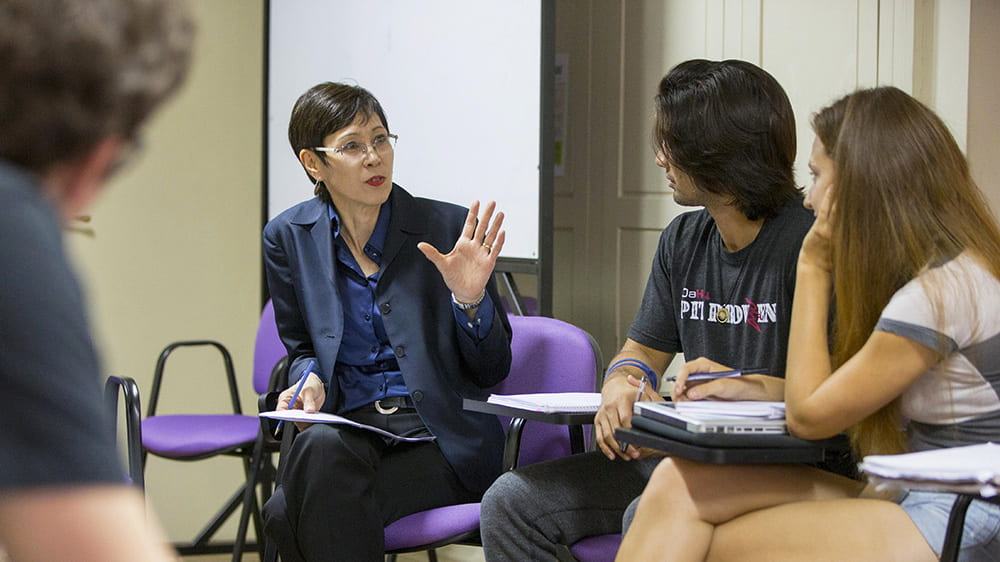Growing up in a Japanese German American family, Anna Kazumi Stahl enjoyed playing word games, savoring the subtle but culturally precise differences in meaning across languages. It’s no surprise then that writing came to play a significant role in her life.

Anna Kazumi Stahl
When Stahl decided to study abroad in Argentina as a college student, she’d never visited the country before. But there, she discovered an unexpected creative energy in its literary culture—and she found it inspiring. “Studying abroad can open up more opportunities than you can rationally know beforehand,” Stahl reflects. “Especially when you are traveling to a culture that is new, unfamiliar, and potentially full of revelations.” Today, Stahl has lived in Argentina for 20 years, where she serves as NYU Buenos Aires’ program director and teaches the course Creative Writing: Argentina.
NYU: In your view, what can studying creative writing teach us about ourselves and the world?
Stahl: Words are a very special instrument for transmitting experience. They can communicate a message clearly to a broad, diverse audience and yet also preserve and highlight the individual voice, mood, and moment. Moreover, communicating effectively with your words and your storytelling is a key skill today, more relevant than ever in this fast-paced, multimedia, and multicultural age. In my class students work on expanding their knowledge about styles and techniques for writing. In the process they become more empowered to apply those tools to their own purposes.
NYU: What is unique about studying creative writing in Buenos Aires?
Stahl: Being in a foreign environment heightens your perceptions; you are exploring and adapting to new local realities. At the same time, because reflection and inner processing are also part of writing as an art, you hone your self-awareness. You strengthen your own voice and its range; you stretch it to be able to encompass the new experiences you’re having abroad.

My course provides a structure for each student to begin and sustain a personal writing practice and find their own style and interests. In general, everyone is putting words to the experience of living abroad. So everyone is creating stories or poetic pieces and sometimes even multimedia narratives around what they are seeing, hearing, tasting, and experiencing every day. Whether going about their new routines or heading out to travel, writing becomes part of completing any given experience: it captures the moment, delves below the surface, and makes more sense of the ephemeral first impressions.
Plus, there’s another dimension in the course: I want my students to meet people who can connect them to the profession of being a writer. So we meet with published authors, publishers, and agents. They demythologize some aspects and also give their personal perspectives and advice. Every spring is special because our Creative Writing: Argentina course often gets a slot at the International Book Fair of Buenos Aires, where students read a piece of their own original work to a local audience.
NYU: When it comes to studying away, what one piece of advice would you give students?
Stahl: Be open-minded.
NYU: As a lecturer, what goal do you hope all your students achieve as a result of studying with you?
Stahl: My core goal is for all students to find and strengthen their voice—and to do so in an environment that values difference and respects spaces of dialogue and exchange.
NYU: What three things do you encourage your students to do to deepen their understanding of Buenos Aires?
Stahl: Try the shared ritual of drinking maté. Learn to recognize the terms from Indigenous languages that are woven into the Spanish of Argentina—maybe even take up one of the 15 Indigenous languages still spoken here. Ride a bus, any bus, on its whole route, and let the city as it rolls by show you its incredible diversity, contrasting neighborhoods, wide-ranging socioeconomic realities, and vibrantly unique cultural enclaves, all flowing together as you ride end-to-end through this massive, major Latin American megacity.
Content repurposed with permission from NYU Global Notebook